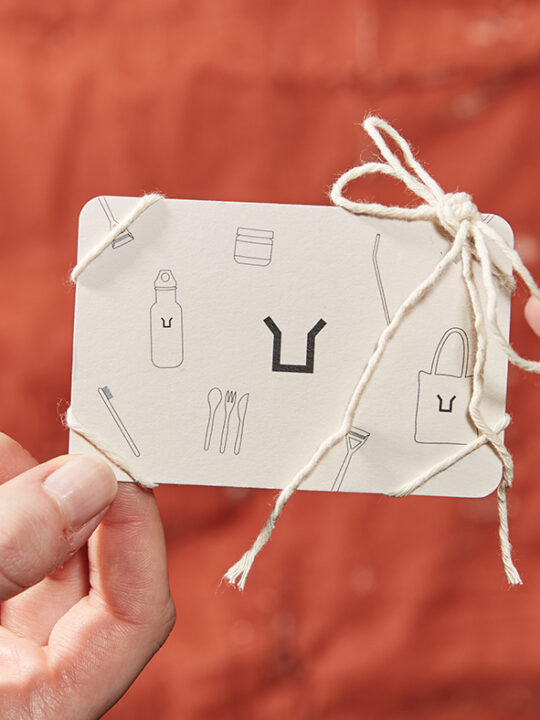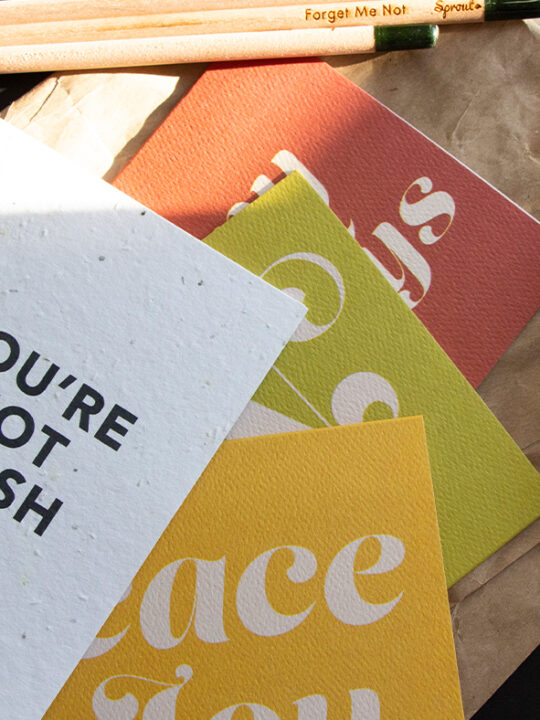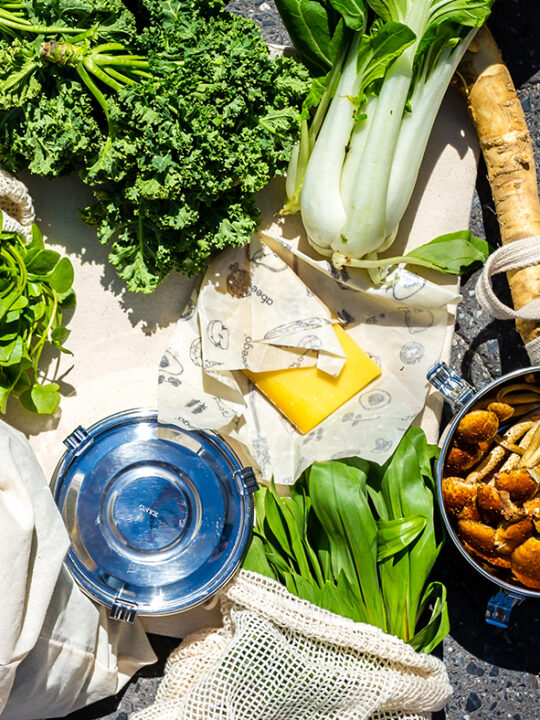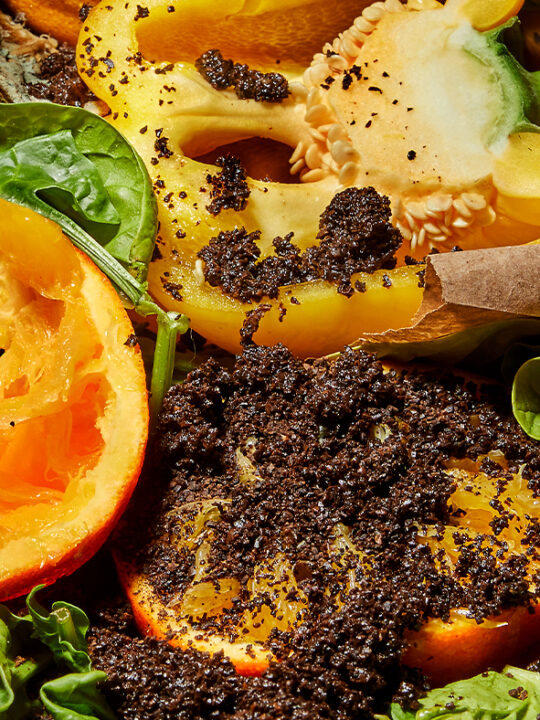Surprise! Subscriptions are 40% off today only, 12/20, at Package Free!
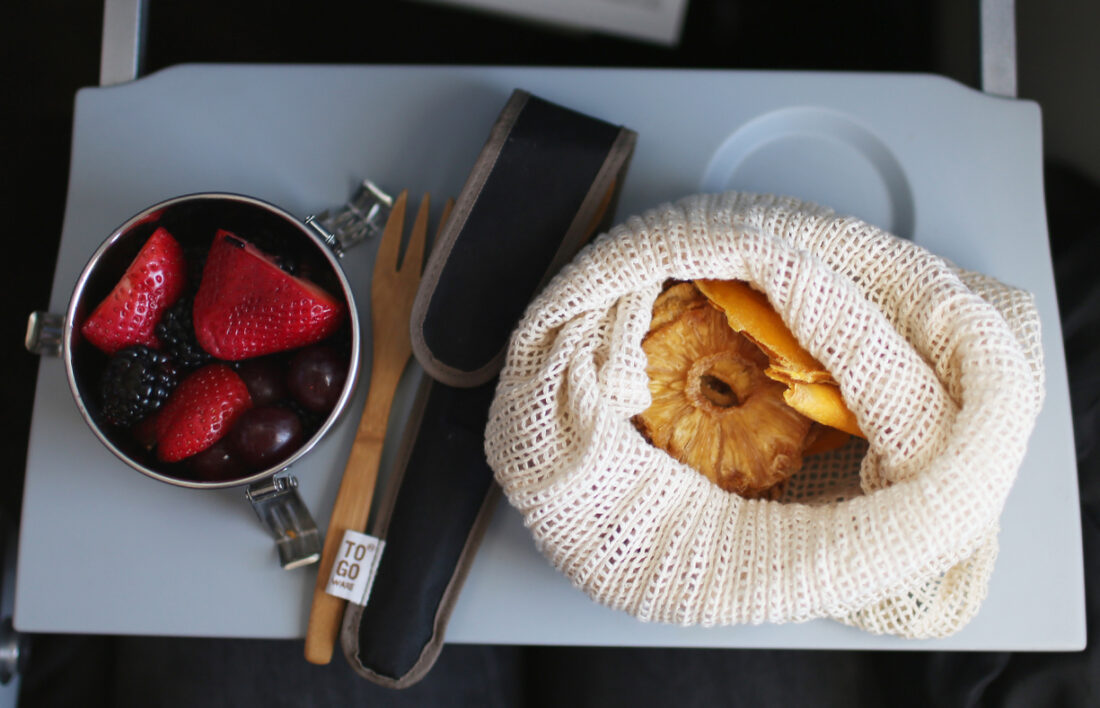
The secret to successfully reducing waste? Planning ahead.
It’s not the most exciting secret to share, but planning ahead is one of the best things that you can do to avoid creating unnecessary waste.
Here is how planning can help you avoid three common and wasteful mistakes…
Common Mistake #1: On-The-Go Impulse Purchases
Have you ever been out on a hot day and suddenly realized that you’re super dehydrated? Or maybe your roommate spontaneously calls and asks you to pick up a few things from the grocery store on your way home? Or maybe your lunch didn’t fill you up as much as you thought it would and now your stomach is growling out of control?
I’ve been caught in these situations (or similar ones) before. And without preparation, the common mistake would be to buy a plastic water bottle at the nearest store, to accept a plastic bag to help you carry all of the groceries home, or to buy a packaged snack to hold you over until dinnertime.
Planning Solution:
To help avoid being caught in these wasteful situations, I never leave the house without a tote bag, a water bottle or coffee cup, cutlery, and some kind of a snack (which for me is typically a piece of fruit or nuts packed in a reusable silicone bag). Some days I won’t use any of it, and other days I’ll end up needing all of it. The biggest takeaway here is to be prepared with your reusable items juuuuust in case, to steer clear of impulsively buying packaged items or using plastic when you’re out.
Common Mistake #2: Overbuying and Wasting Food
40 percent of the entire US food supply is wasted every year, which equals 80 billion pounds of food. This number makes me really upset. To put that into perspective, this is equivalent to 1000 Empire State Buildings. You may be thinking, “I don’t waste that much food”, but in reality, the average person wastes approximately 219 pounds of food per year. And this isn’t just happening on holidays like Thanksgiving. Food waste happens every single day, largely from either buying too much of something, from throwing away leftovers, or from tossing things based on past “best before” dates.
Tossing food into the garbage is particularly bad because when food breaks down in a landfill, it does so without oxygen, which creates methane—one of the most powerful greenhouse gasses contributing to global temperature rises. Learn more on that here.
Planning Solutions:
- Food shopping: Preparation starts at home. First step? Assess what you’ll actually need and use for the week. For example, if you know that you’ll be going out to eat one night during the week, plan accordingly and buy less food than you did the week before. Planning meals ahead of time can also be helpful (so that you buy based on set recipes) or do as the Europeans do and shop for a smaller amount of food every couple of days (if it is safe for you to do so).
- Leftovers: If you cook more than you can consume in one night, save the rest for later in your fridge or freezer so that nothing is wasted. Here are some of my favorite storage solutions!
- Food scraps: If you find that you’re throwing away lots of random food scraps at the end of the week (think: half of an onion, leftover arugula about to go soggy, leftover salad dressing, or extra herbs), here are some creative ways to turn leftover scraps into yummy meals! Otherwise, composting is also an amazing option—especially for inedible parts of food!
Common Mistake #3: “In A Pinch” Purchases
It’s 10pm. You’re getting ready for bed when suddenly you remember that you ran out of toothpaste this morning. And now you have to run to the store to pick up a generic plastic tube.
Planning Solutions:
- Taking frequent inventories: To prevent “in a pinch” plastic purchases, take an inventory of the everyday items that you use, and note how much of each product you have left. If you see that you’re running low on something, add it to your weekly grocery list so that you have a sustainable backup waiting for when you run out. Psst. If you’re running low on toothpaste, consider picking up these ingredients to make your own!
- Package Free Subscriptions: It’s common to forget and be caught in a pinch, which is why at Package Free we’ve created subscriptions for our best-selling Package Free products that help you reduce waste daily. You can schedule regular deliveries of your favorite Zero Waste products (at the frequency that you choose) so that you don’t have to worry about ever being without them. Plus, subscriptions cost less than a one-time purchase, so you save time and money. Win win! Check out all of the items available for subscription here.



